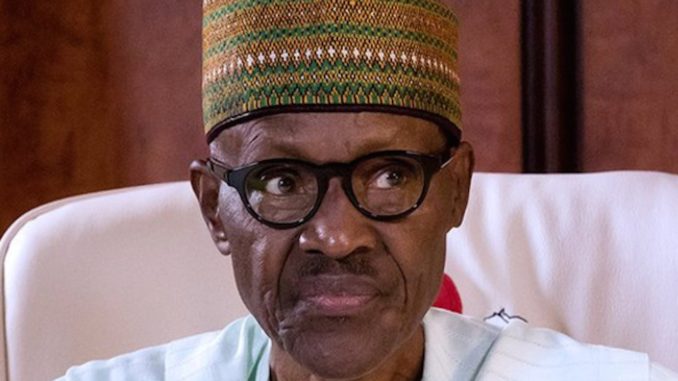
The prevailing relative peace, as well as the steadily deteriorating national economy that has brought untold hardships to millions of poverty-stricken Nigerians may be further threatened if the President Muhammadu Buhari-led Federal Government fails to prevent another looming nationwide strike starting on Tuesday, January 8, 2019. Just last week, the Ayuba Wabba-led Organised Labour had assured with a good measure of finality, that nothing would stop them from going ahead with the nationwide strike following government’s failure to approve the new national minimum wage of N30,000 for Nigerian workers.
The organised labour leaders reportedly accused President Buhari, as well as the embattled Minister of Labour and Employment, Dr. Chris Ngige for frustrating plans to ensure the new national minimum wage became operational seamlessly throughout the country before the end of December 2018. Wabba was reported to have expressed his organisation’s disappointment over the handling of the issue so far by government in spite of the fact that organised labour had voluntarily agreed to reduce its earlier figure from N65,000.00 to N30,000.00.
Sometime in November 2017, President Buhari had inaugurated a 29-member Tripartite Committee on New National Minimum Wage consisting of government, organised labour and employers of labour to come up with a new national minimum wage for Nigerian workers. The National Minimum Wage Committee was expected to conclude its assignment and submit its report to the president by August 21, 2018.
Although Dr. Ngige had reportedly assured Nigerians that federal government was committed to introducing new national minimum wage by September, 2018 in view of the importance President Buhari attaches to welfare of workers, the seemingly shoddy and insincere manner government is handling the delicate issue, especially ahead of the crucial 2019 general elections, is casting huge doubt over its earlier reported commitment to having a new national minimum wage in place by September 2018. No wonder many were skeptical about government’s intention when it set up the Committee and had since concluded it was a way government wanted to hoodwink Nigerian workers, ahead of 2019 elections.
There seems to be some iota of truth in this assumption judging by Wabba’s consistent accusation of the sitting administration of delaying process of having a mutually agreed new national minimum wage for Nigerian workers. Signs that the controversial new wage was dead on arrival manifested themselves when the relevant stakeholders – federal government, organised labour, employers of labour, represented by the Nigeria Employers’ Consultative Association (NECA), as well as the state governors, represented by the Nigeria Governors’ Forum, could not come up with their respective figures for the National Minimum Wage Committee to work with in order to arrive at mutually agreed figure to be presented to the president as recommended new national minimum wage.
Rather than pay serious attention to their assignment which had generated a lot of interest and heat among Nigerians, members of the committee were engaged in bickerings and mundane issues that eventually caused delay in timely submission of their report to the president.
The federal government that was expected to demonstrate exemplary conduct dragged its feet endlessly over submission of its figure whereas Organised Labour and NECA had indicated N30, 000.00 and N25, 000. 00, respectively. According to Wabba, of the 36 states, 21 submitted memoranda out of which 12 provided figures. The Governor Abudulaziz Yari-led Nigeria Governors’ Forum had repeatedly arrogantly insisted they could not afford to pay N30, 000. 00 whereas most of the governors have turned deaf ears to advice that they reduce drastically, costs of governance and shun ostentatious lifestyles they exhibit. It is saddening that not less than 30 of the 36 states are financially insolvent while a huge number of them are not only indebted to their workers and pensioners but have also not been able to pay the N18, 000.00 minimum wage introduced nine years ago.
The organised labour had embarked on not less than two indefinite industrial actions throughout the country following government’s failure to come up with its figure. The actions which paralysed economic activities and caused hardship and losses running into billions of naira were later called off when government promised to do the needful. It is now almost two months since report of the committee was submitted to the president but government is yet to clearly show it is fully committed to approving the recommended new national minimum wage of N30, 000.00.
Nigeria is presently in a precarious situation, especially as the elections are fast approaching. Anything that could compound the situation would not be in the interest of government and the citizenry. We, therefore, implore government to do the needful now to avert the looming labour strike. If the Muhammadu Buhari administration is truly sincere to give Nigerian workers a new wage package, the president should without further delay, send a Bill on the N30,000.00 New National Minimum Wage to National Assembly for passage into law.
END

Be the first to comment